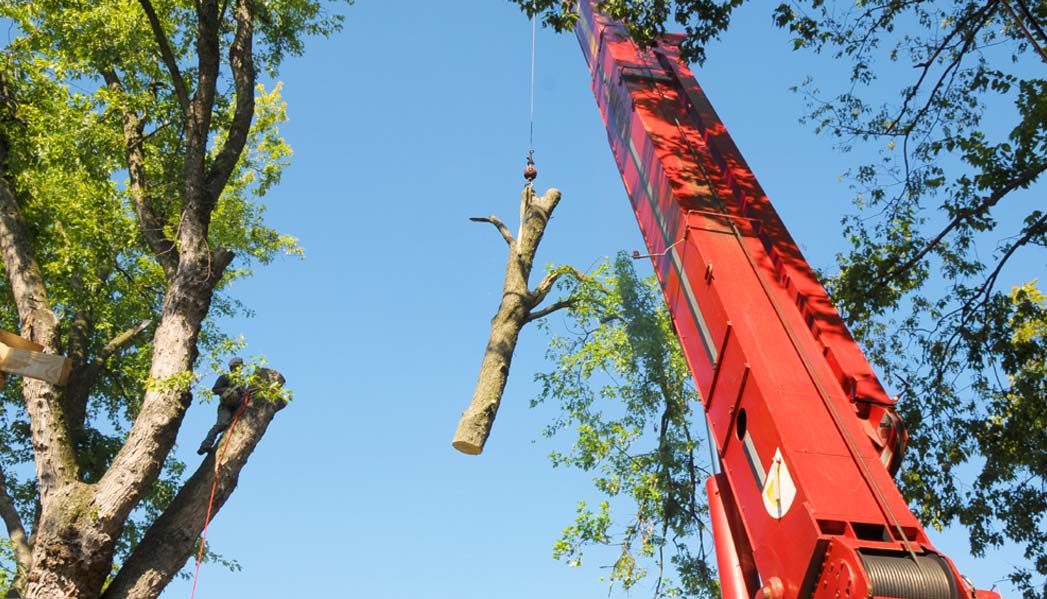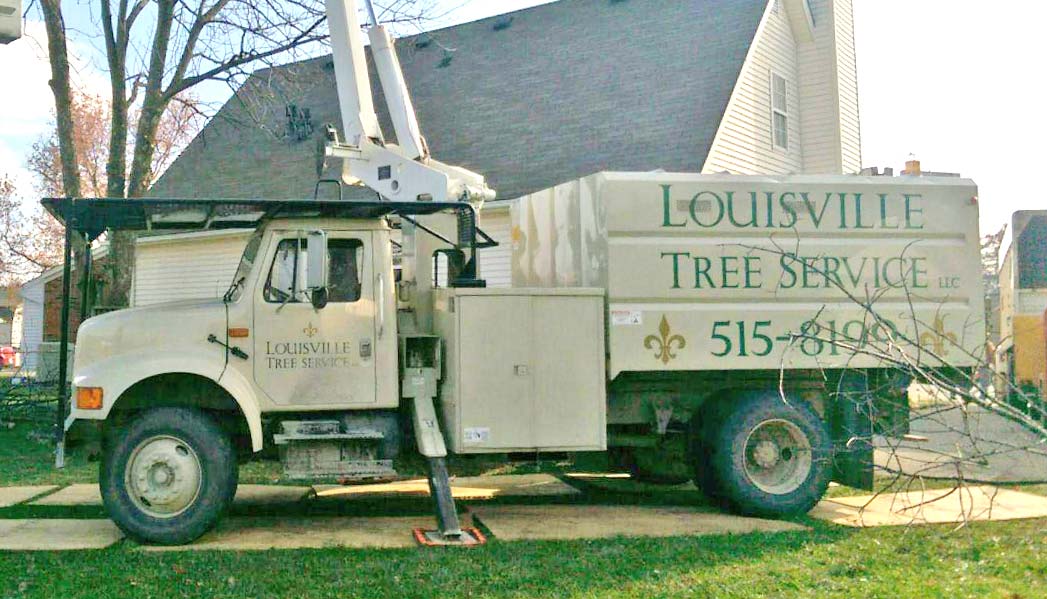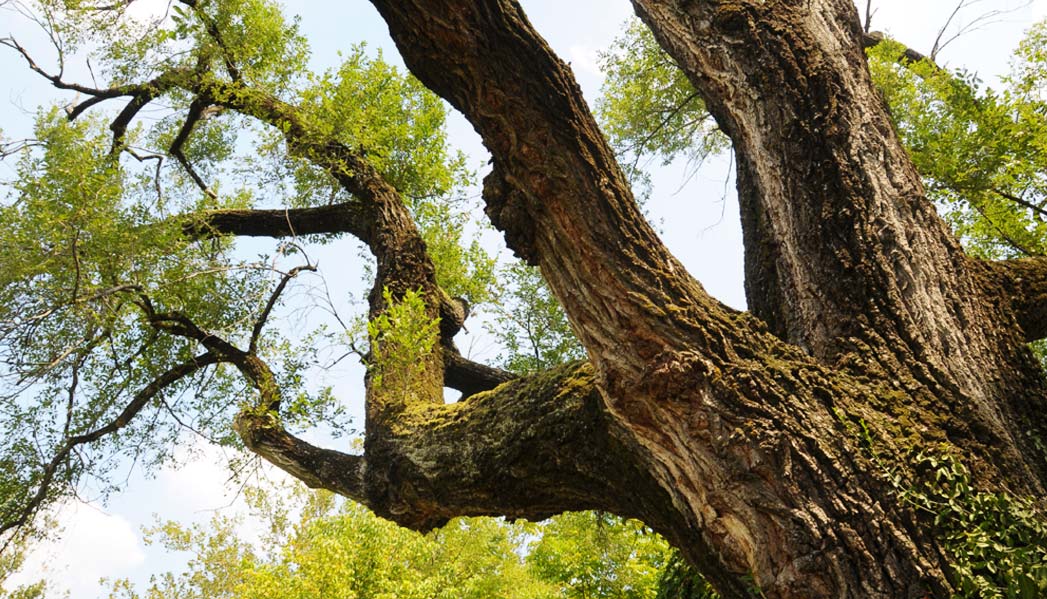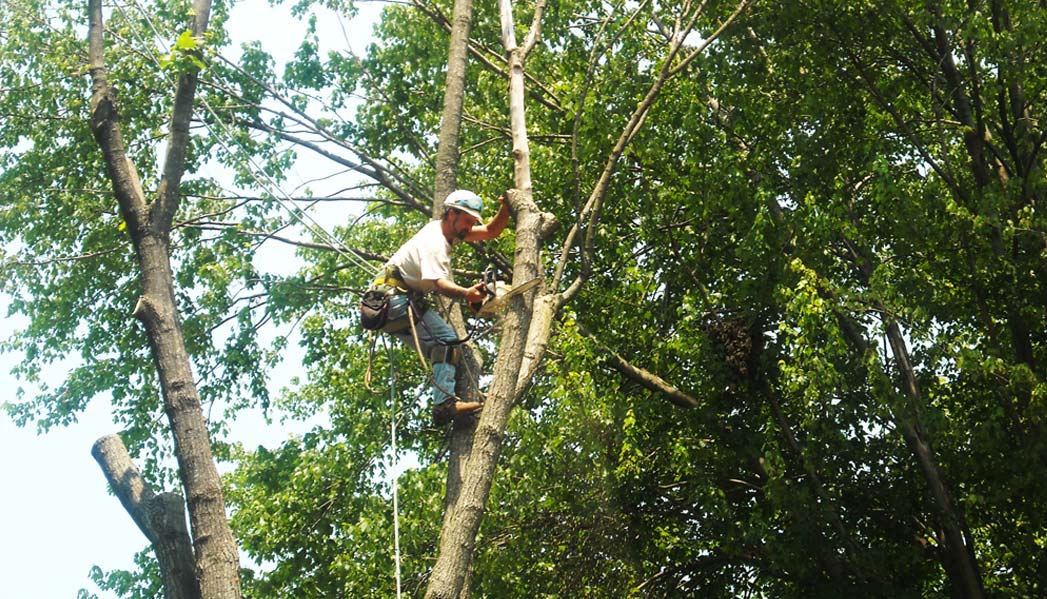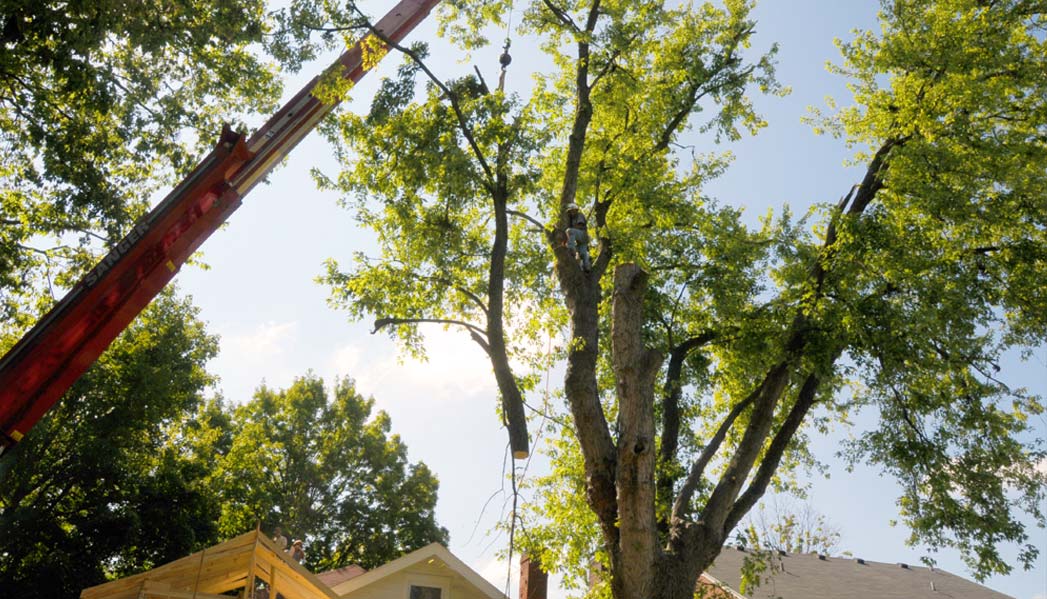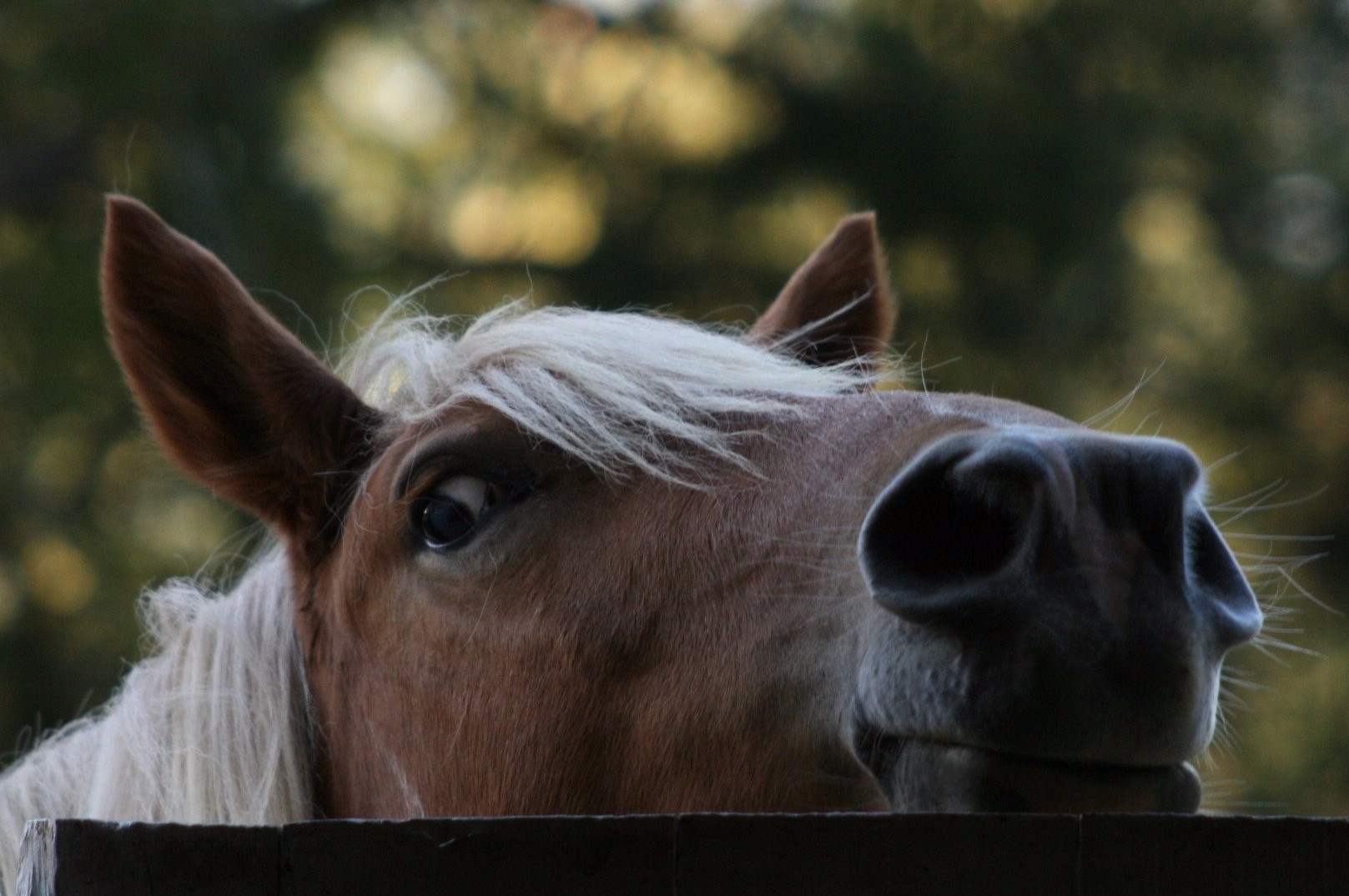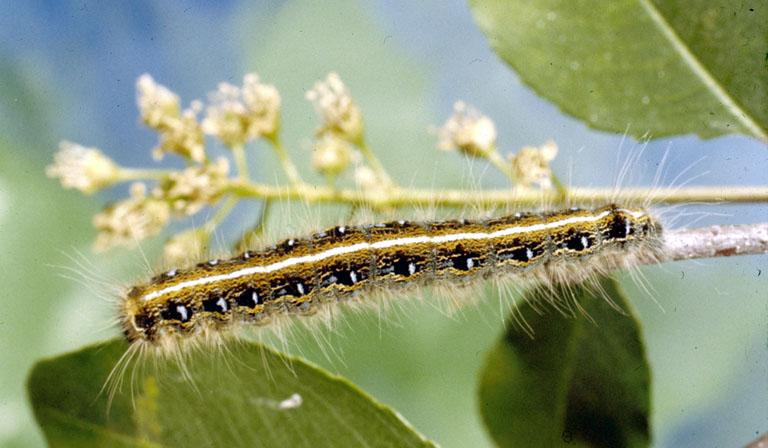Louisville Tree Service Blog
Recent Blog Articles
Horse Owners in Kentucky Watch Out for This Little Killer »
It is not often that people should be afraid of a small insect like the E-Tent Caterpillar, but horse owners should be. In Kentucky, these tent caterpillars are responsible for the death's of hundreds of thoroughbred foals. According to Lee Townsend, an entomologist at the University of Kentucky (in an article from Bloodhorse.com), researchers have conducted studies that revealed horses inadvertently eat the caterpillars. When they eat them, the hairs on the caterpillar get embedded into the lining of the horse's alimentary tract, which causes the protective barrier to be breached. Normal alimentary tract bacteria may gain access to and reproduce in sites with reduced immunity, such as the fetus and placenta. Eastern tent caterpillars are black with a white stripe and build their nests in the crotches of trees, preferably in places the sunshine hits. Its cousins, the forest tent caterpillars, look similar to the eastern but have "key hole" shapes on their backs and adults have blue stripes on their sides. The caterpillars mostly prefer the Black Cherry, Choke Cherry and Scrub Apple trees. The black cherry trees and choke cherry trees, should be removed from fence lines, because of the caterpillars and the damaged leaves produce cyanide.
When mature, the large, hairy caterpillars wander from their developmental sites along fence lines. Townsend said horse owners and farm managers with pregnant mares should begin to monitor fence lines containing wild cherry and other host trees in about 10 days. They should look for small tents produced by developing caterpillars. If practical, farm managers should plan to move pregnant mares from areas where the trees are abundant to minimize the chance of caterpillar exposure. The threat is greatest when the mature tent caterpillar wanders away from the trees and search to find places to pupate and then transform to the moth stage. Another threat to the well-being of horses are black cherry trees and choke cherry trees, they should be removed from fence lines, because the damaged leaves produce cyanide.
Louisville Tree Service, LLC who serves the Jefferson, Oldham, & Shelby Counties can help local horse owners to eliminate tent caterpillars by pruning trees and applying insecticides near barns and fences. Early detection is key when it comes to controlling the infestation. It's better to catch and control their growth before they spread, multiply and age. Once that happens, they are much harder to kill with insecticides. Call us at 502-515-8199 for a free estimate.
Tree Care Services »
At Louisville Tree Service, LLC we are committed to offering our customers valued and knowledgeable tree care service. We understand that proper tree maintenance and tree care will help increase and protect your property value. By hiring Louisville Tree Service, you can benefit from our knowledge, scientific background and expertise to help you make the best tree care decision for your property.
Our Tree Care Services
- Free Estimates on Tree Removal Cost
- Service in Louisville, Kentucky, Jefferson and Oldham Counties
- Competitive and Affordable Pricing
- Complete Site and Debris Clean up
- Emerald Ash Borer Treatment
- Tree Trimming, and Tree Pruning
- Stump Removal and Stump Grinding
- Plant Health Care
We offer tree care services for residential and commercial tree service projects, both large and small jobs. Our skilled professionals and certified arborists make safety and quality our top priority by utilizing the latest and safest equipment, craning services and roping techniques.
We offer Free Estimates on our tree services and ensure that every job is done right.
Horned Oak Gall - Tree Diseases »
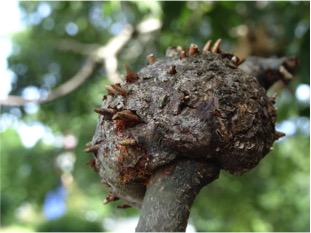
Known to occur from southern Canada to Georgia, Horned Oak Gall is abnormal tissue growth that is infected by wasp eggs on Pin, Shingle, Laurel and/or Willow Oaks. Most types of gall are only aesthetically unpleasant and are no risk to the health of the tree. However, Horned Oak Gall are unsightly and have the potential to kill a heavily infested tree by reducing vigor and opening up the tree to secondary attacks from other insects and diseases.
About The Horned Oak Gall
Galls occur when in the spring, when tiny wasps lay their eggs on the leaves, causing small blister like bubbles. The second generation lay eggs in the summer, in the buds of the twigs, which eventually cause woody masses. The woody masses are where the wasp eggs are held. The woody masses, or galls, girdle the branches and act as parasites stealing food, nutrients and energy from the tree. Since each gall can hold up to 200 eggs the damage can be quite rapid and devastating to the tree. These galls can grow more than 2 inches in diameter and take two to three years to fully develop. During the egg-laying process and early larval feeding period, specialized body glands secrete growth regulating chemicals that interact with certain plant chemicals to produce these abnormal growths/galls. Once a gall begins to develop it is impossible to stop or reverse its development.
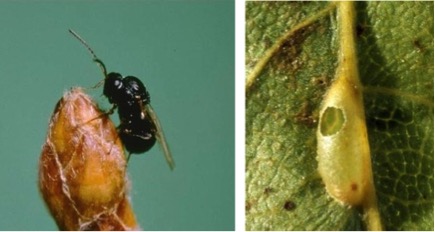
Stages Of Development
- STAGE 1- initially the gall looks like blisters on the foliage.
- STAGE 2 - male and female wasps emerge, mate, and then the female wasp lays eggs in the buds of the twigs.
- STAGE 3 - in two to three years the gall becomes mature and a female wasp will emerge to restart the cycle.
The galls have much durability when it comes to self-preservation. They provide complete protection from natural enemies and also from insecticide treatments. Unless registered insecticides are applied, when gall wasps are still flying about, they offer little or no effective measure of control.
Treatment
At Louisville Tree Service, LLC If the tree is lightly infested with oak gall, we prune the infested branches to reduce the problem and prolong the life of the tree. We often use a basal root flare and soil injection for a minimum of three consecutive years, which can be used as a preventative to break the life cycle. Around mid-April, while the galls are small and have yet to develop, we inject the soil, prune and destroy the infested plant material. This takes place before early May since that is when the pests emerge. If you would like to know more about this process and our other services, please contact us with any questions.
Louisville Tree Services »
My name is John Ridgill. I am the owner of Louisville Tree Service, LLC. Our goal at Louisville Tree Service is to take care of all your tree needs while also taking care of your property.
How do we do that? Simply by knowing what your tree needs are and attending to those needs. Trees are our expertise, so the first step is to know and inform you about disease and pest control in relation to your trees.
Our next step and goal, is to inform you about arboriculture practices. Trust us, this is a must-know for anyone who breathes oxygen or has a property with trees.
What is arboriculture? Good question. Arboriculture is the cultivation, management, and study of individual trees, shrubs, vines, and other perennial woody plants. It is both a practice and a science. The science of arboriculture studies how these plants grow and respond to cultural practices and also to their environment. At Louisville Tree Service, LLC. our goal is to inform our customers and followers about the latest arboriculture practices.
Taking care of your tree needs is important, so why not leave that job to the professionals at Louisville Tree Service, LLC? We will do it right the first time.
Louisville Tree Service, LLC. has certified arborists on staff who want to help you with all of your tree needs. We use the latest state of the art equipment, the safest tree care techniques and our extensive experience to ensure that we offer expert tree care to all of our clients. Call us today and we will have one of our certified arborists come out and give you a free estimate.
About Us
We serve Jefferson, Oldham, & Shelby Counties and have over 20 Years of Experience! Contact us at 502-515-8199.

